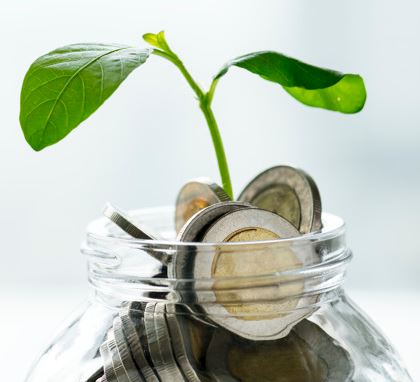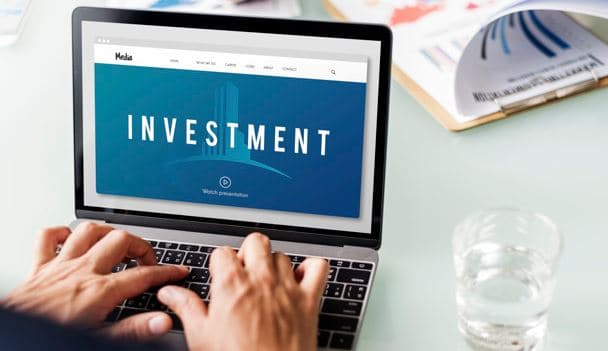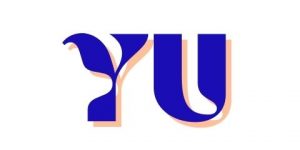One of the hot topics now on different social media platforms is money market funds in Kenya. What are these funds, and why all the hype?
Is it something you should consider when you are thinking of saving?
Unfortunately, most people are only interested in what money market funds are paying the highest interest.
While it is understandable since we all want to grow our money fast, there is more to MMFs that just interests.
Below, we look at money market funds, what they are, and what it takes to invest in one. We will also highlight some of the companies that offer this investment option in Kenya.

What is a Money Market Fund?
A Money Market Fund, otherwise known as an MMF, is a type of investment vehicle made up of pooled resources from different people.
The fund is at times referred to as a mutual fund. These funds, collected from many investors, are managed by professional money managers on their behalf.
So, where do the managers take these monies? Well, they invest money in conservative opportunities such as shares and government bills.
Fund managers also advance loans to banks, among other established companies that need money for a short period of time.
The aim is to get capital gains from these investments and earn some interest on behalf of the investors.
Money is invested in cash and near-cash opportunities, and the interest earned is then shared amongst the investors depending on overall performance within a certain period of time.
Is Your Money Safe In A Money Market Fund?
Investments come with some risk element, which also applies when it comes to Money Market Funds. However, as Mellody Hobson said, the biggest risk of all is not taking one at all. Any investment worth your time will come with a certain element of risk, and it is up to you to determine how much money you are comfortable losing.
That said, MMFs are among the safest investment options available and only comes second to government bills and bonds.
Chances of losing your investment in a money market fund are minimal since the managers only invest in the short term, conservative, and low-risk areas such as commercial paper and treasury bills.
Money Market Funds are regulated by the Capital Markets Authority or CMA in short. CMA has set strict rules to protect the investors and ensure that their funds are managed well.
For example, CMA limits the amount a manager can invest in one area to 25%. If your manager lends a few banks money and one of them defaults, you are guaranteed that your loss will not go above 25% of your investment.
Such losses are rare since the managers do their due diligence before putting their clients’ money anywhere.

No loss has been reported in the past 10 years, making Money Market Funds relatively safe for investors.
Other Benefits of Money Market Funds
First is the compounding effect. If you invest in a money market today, the interest you earn will be added to your investment.
This means that next month, your investment will be more than it was today, and this amount continues to increase the more the money stays in the MMF.
Interest earned in a Money Market Fund also tends to be higher. Depending on the fund manager, the interest rate ranges from 5% to over 10%.
This percentage cannot be compared to the amount you earn in bank-saving accounts and platforms such as Mswari lock saving. Investing in a good money market fund can only translate to more money in your pockets.
Additionally, unlike in the case of government securities, you do not need to wait until a specific period has passed to access your money. You can put all your money in a Money Market Fund today and withdraw it all next month.
Interest earned on the investment is calculated daily and credited to your account once all associated costs have been removed.
This means that instead of leaving your money in a current account where it is not earning any profits, you can channel it into a Money Market Fund and earn some profit.
Even if you have set the cash away for a project, you will only need to alert your manager when you need the money. Within a few days, the money will be in your account.
Money Market Funds also allows you to put your money in investments that are only available to large investors. The minimal amount you can invest in depends on the MMF provider, but you can start with as low as Ksh 2000.
Some managers even allow amounts as low as 100 shillings. Because of economies of scale, you get to enjoy rewards from investments that would have otherwise been inaccessible.
It is also easy to tell these funds’ performance since CMA requires mutual funds to report this information to investors.
So, now that you know what money market funds are and their benefits, what do you need to invest in one?
What Do You Need to Invest in Money Market Funds in Kenya?
You need to register with your choice Money Market Fund. You can put your money in one or two best-performing ones among the options available.
You can either choose to visit their offices or complete the registration online.
A one-on-one visit will benefit anyone who wants more information on the MMF and what to expect from it.
However, if you have researched and are comfortable with the information you have, an online application will save you a lot of time.
It is also possible to ask for more details online and have all the information you need sent to your mail.
Some of the documents that you need to attach in the application form include:
- Copy of ID or a passport
- A scanned Passport Photo
- Your KRA Pin Certificate
- A copy with your bank details. This can either be a cancelled cheque, a copy of your bank statement, or a copy of your ATM.
- Copy of Utility bill or Complete residential information
- A complete Risk Assessment section
Once you have submitted all the necessary documents, you need to send your initial investment for your account to become active.
You should attach the payment details in the form of the Mpesa reference number, a scanned copy of the bank deposit, a signed cheque, or a screenshot of the bank transfer, depending on the mode of payment used.
Risks of Money Market funds
If the financial system in the country collapsed, you could lose your money. Fortunately, such occurrences are rare, and this has not been reported in Kenya.
Inflation could go beyond the return from your investment money market fund. Either way, you would lose money even if you just had it sitting in the bank. The only difference is that your loss would be higher.
Deciding Where To Invest In Money Market Funds In Kenya
Now that you know that money market funds are a great investment vehicle and you have all it takes to invest in one, you must decide what fund manager to use.
It is easy to go with the fund manager offering the highest return on investment. After all, we all want to make a profit.
However, you must take your time to investigate the fund managers in question. Where is the money being invested? How reasonable is the interest rate compared to other fund managers?
Your chosen manager should be transparent enough to let you know where the money is being invested.
A credible money market funds manager normally gives you a fact sheet that lets you know where your money will be invested and much more.
Related Post: PayPal To Mpesa Withdrawal
How To Use Money Market Fund
- Save For Emergencies
One of the biggest lessons the 2020-2021 pandemic has taught us is the importance of having some savings stashed somewhere.
With some decent savings, you do not have to panic every time unforeseen events arise.
- Save for projects
- Save for opportunities that you do not have at the moment.
- Having liquid cash, you can access quickly when a lucrative opportunity shows up.
- A good way to keep unexpected funds or a windfall before deciding what to do with it
- Great way to keep aside money for non-monthly expenses such as school fees and insurance.
In Conclusion
Money Market Funds in Kenya continue to grow, which is an indication that investors in this field are happy with the results.
If you save in bank accounts, consider putting your money in a money market fund to grow faster.
MMFs are also ideal for Chama contributions and putting those windfalls that come your way.
At least you get to see how much your investment makes every day, and your money stays liquid and easily accessible whenever necessary.
